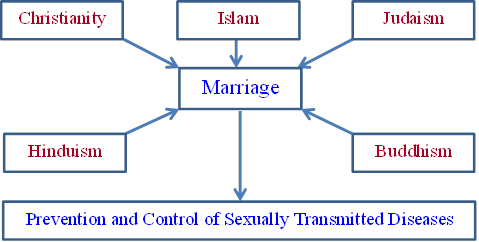Mohammad Akram Randhawa
Northern Border University, Saudi Arabia
Title: Religions and marriage for the prevention and control of sexually transmitted diseases
Biography
Biography: Mohammad Akram Randhawa
Abstract
Religion may be defined as a cultural system of behaviors and practices, based on believes about supernatural being/s and sacred texts that help humanity to live peacefully in a community. About 84% of world's population is linked to one of five major religions: Christianity, Islam, Judaism, Hinduism and Buddhism. Besides others, one thing common in these religions is marriage, which is a life-long cultural and spiritual union between man and women, and serves important objectives: propagation of human race and provision of a companion of life for love and enjoyment. Religions give great emphasis to marriage and discourage immorality and adultery. In Holy Bible, it is narrated, "Then the Lord God said, it is not good that the man (Adam) should be alone; I will make him a helper fit for him" (Genesis: 2, 18). Moreover, it is mentioned, "Let marriage be held in honor among all, and let the marriage bed be undefiled, for God will judge the sexually immoral and adulterous" (Hebrews 13:4). Holy Qoran describes marriage as a divine favor from God Almighty, "Among his signs is that he created for you spouses from among yourselves, that you may live in peace with them, and spread love and compassion between you and them; surely, there are signs in that for those who reflect" (30; 21). In Judaism marriage is an important event and avoiding from it is considered as unnatural. In Vedic Hindu traditions and Buddhism also marriage is a sacred ceremony and lifelong commitment between wife and husband. Present article is aimed to project religions and marriage as significant factors in the prevention and control of sexually transmitted diseases, particularly Human Immune-deficiency Virus (HIV) infection, which is becoming epidemic worldwide and there is no effective vaccine or treatment for that so far.


